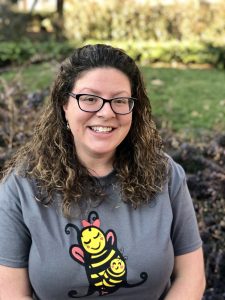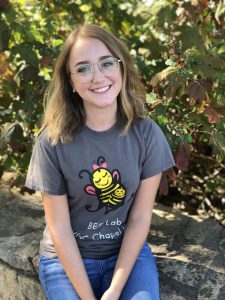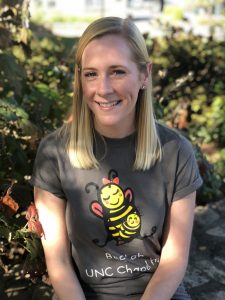Dr. Noa Gueron-Sela (Department of Psychology, Ben-Gurion Univeristy, Israel)
Dr. Gueron-Sela’s research focuses on social and cognitive development in early childhood with specific interests in children born at high prenatal and neonatal risk (e.g., preterm infants) in order to identify protective environmental factors that may set these children on adaptive developmental trajectories. [email: gueron@bgu.ac.il]
Dr. Eric Hodges (School of Nursing, UNC Chapel Hill)
Dr. Hodge’s research focuses on the role of caregiver/infant-toddler dyadic responsiveness during feeding in the development of the young child’s self-regulation of feeding, with a primary interest in the area of early childhood obesity prevention. He is also the Director of the Biobehavioral Lab (BBL) Core Facility at UNC School of Nursing, specializing in addressing the interface of biological and psychosocial factors that underlie individual responses to acute and chronic illnesses. [email: eahodges@email.unc.edu]
Dr. Steven Holochwost (Science of Learning Institute, Johns Hopkins University)
Dr. Holochwost’s research focuses on the effects of environment- particularly poverty and parenting- on voluntary forms of self-regulation and the involuntary activity of neurophysiological systems that support self-regulatory abilities. In addition, as a Senior Research Scientist and Associate Principal at WolfBrown, where he directs evaluations of programs designed to improve the lives of under-served children and youth. [email: steven@wolfbrown.com]
Dr. Sarah Short (Center for Healthy Minds, University of Wisconsin)
Dr. Short’s research examines the development of brain structure and function in relation to emerging cognitive abilities in typically developing and high-risk children. The goal of her research is to utilize developmental neuroscience to improve the design and efficacy of early interventions protocols. [email: sjshort@wisc.edu]
Dr. Alison Stuebe (Department of Obstetrics & Gynecology, UNC School of Medicine)
Dr. Stuebe’s research focuses on the role of oxytocin in women’s health and postpartum depression and on developing models for holistic care of families during the 4th Trimester. [email: alison_stuebe@med.unc.edu]
Dr. Margaret Swingler (Frank Porter Graham Child Development Institute, UNC Chapel Hill)
Dr. Swingler’s research examines the psychophysiological and neurodevelopmental underpinnings of early social-emotional and cognitive development, with a specific focus on attention, executive function, and regulation. She specifically is interested in the the roles of parent-child relationships, early parenting experiences, and early life stresses on these emerging biological, behavioral, and cognitive processes. [email: mmswing@email.unc.edu]
Dr. Douglas Teti (Human Development and Family Studies, Pennsylvania State University)
Dr. Teti’s research focuses on socio-emotional development in early childhood, parenting competence and parenting at risk, how parenting is affected by parental mental health and contextual factors, and how parenting affects infant and child functioning. His work examines the joint, interactive effects of biological/medical and environmental/parenting factors on child development and parenting during the early years of life. [email: dmt16@psu.edu]
Dr. Nicholas Wagner (College of Education, University of Maryland)
Dr. Wagner’s research is guided by developmental psychopathology and biopsychosocial frameworks and focuses on the processes by which early risk and protective factors within the family system influence social, emotional, and behavioral development. He is particularly interested in understanding the promotion of psychosocial adaptation versus emerging psychopathology in young children. [email: njwagner@umd.edu]
Dr. Michael Willoughby (Research Triangle Institute)
Dr. Willoughby’s research is broadly organized around the causes, course, and consequences of individual differences in executive function (cognitive abilities that are involved in the control and coordination of information in the service of goal-directed activities), with a specific interest in how developmental changes in executive function during early childhood contribute to children’s school readiness and risk for disruptive behavior disorders. [email: mwilloughby@rti.org]
Dr. Bharathi Zvara (School of Public Health, UNC Chapel Hill)
Dr. Zvara’s research focuses on children born into families experiencing risk and challenge from conditions associated with trauma, maternal depression, poverty, and violence. She is specifically interested in the study of psychopathology and competence across multiple generations and how family processes impact risk for poor self-regulation and childhood obesity. [email: zvara@email.unc.edu]







